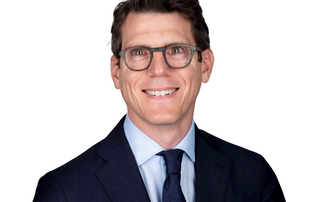Robert Horrocks, CIO of Matthews Asia
Reformist agendas throughout the Asian region create general optimism for the private sector. Going into 2015 markets in Asia are better-placed, given valuations.
As wages rise in the North, labor-intensive businesses seem to be shifting their focus toward ASEAN. Certainly, there will be headwinds but the structural long-term picture remains intact.
Over the next decade, I expect Asia's economies to continue raising living standards and to narrow the income gap between its own citizens and those in the U.S. or Europe.
Why do I think this? Asia continues to have a high savings rate. A country cannot grow over the long term without a pool of savings, and it can be risky to rely on external funding to finance domestic growth.
Asia also has a track record of increasing productivity through improving education. It has successfully opened its markets in order to learn about new products and methods of industrial organisation.
Finally, it has a decent track record of government policy reform to support growth and markets.
What about 2015? Much will rest in the hands of central bankers and more will depend on Asia's reform progress. I will be watching the following during 2015 to see how Asia's growth is progressing.
Japan is home to the world's best central banker, Haruhiko Kuroda-one who has paid attention to the monetary policy scholars regarding zero percent interest rates.
Kuroda knows he has to be aggressive, and he seems willing to confront the conventional wisdom that bankers must be conservative, die-hard inflation fighters. I expect Kuroda will continue to push inflation expectations up to 2% and to keep them there. Remember, a weaker yen is the symptom of the policy, not the policy itself.
China is better-placed going into 2015, in terms of market valuations than it is in terms of economic momentum. But these things can quickly change. Whereas much of the talk about China focuses on internal issues, I still think that much of the slowdown in headline growth is due simply to the hangover from the economic problems of the West.
This may suggest that, in terms of the stock market, China may be the short-term beneficiary of US growth. Unlike investors in the US equity markets, China investors are likely to benefit even more from that growth because market valuations have not been imbued with any lofty expectations.
Conversely, a weakening global growth outlook would add extra pressure to China because China is unlikely to enact further sustained or significant stimulus measures. China will likely persevere with its anti-corruption drive, regardless of the economic environment.
We've seen optimism in the India's markets and valuations pushed up to reasonably high levels. If a decade from now we are able to look back on today, and say that Prime Minister Narendra Modi's reforms freed up agriculture, revived the property market, spurred infrastructure investment and liberalised the labor market, we would conclude that stocks today are inexpensive.
But India is not straightforward. Attempted reforms are typically met with resistance, and smooth sailing is unlikely. In 2015, the government will have to continue to convince people it can deliver on actual reforms, and the market may be vulnerable to disappointment.
Across Southeast Asia, the challenges for 2015 will likely be more similar to India. Here, countries are by-and-large in the early stages of industrial development. During 2015, I will look for continued investment from North Asia.
As wages rise in the North, labor-intensive businesses will move their operations to ASEAN and to frontier economies. Indonesia is a potential point of stress in ASEAN, as its market is vulnerable to tighter U.S. monetary policy and it has done less than India to minimize its current account and inflation¬ary issues.
The strong US dollar would likely also play a big role in markets. Keep an eye on regions with current account deficits-Indonesia, the subcontinent and Australasia, which may be able to deal with economic pressure from a strong dollar by devaluing their currencies somewhat, but that can cause US dollar returns to suffer in the short term.
All in all, we begin 2015 optimistic about the future. We will continue to invest in the part of the world that is most focused on reforms. It is the part of the world that, according to the IMF, will account for two-thirds of the world's middle class in 2050.
For more information, click here
The views and information discussed represent opinion and an assessment of market conditions at a specific point in time that are subject to change, and may not reflect the writer's current views. It should not be relied upon as a recommendation to buy and sell particular securities or markets in general. The subject matter contained herein has been derived from several sources believed to be reliable and accurate at the time of compilation. Matthews International Capital Management, LLC does not accept any liability for losses either direct or consequential caused by the use of this information.











